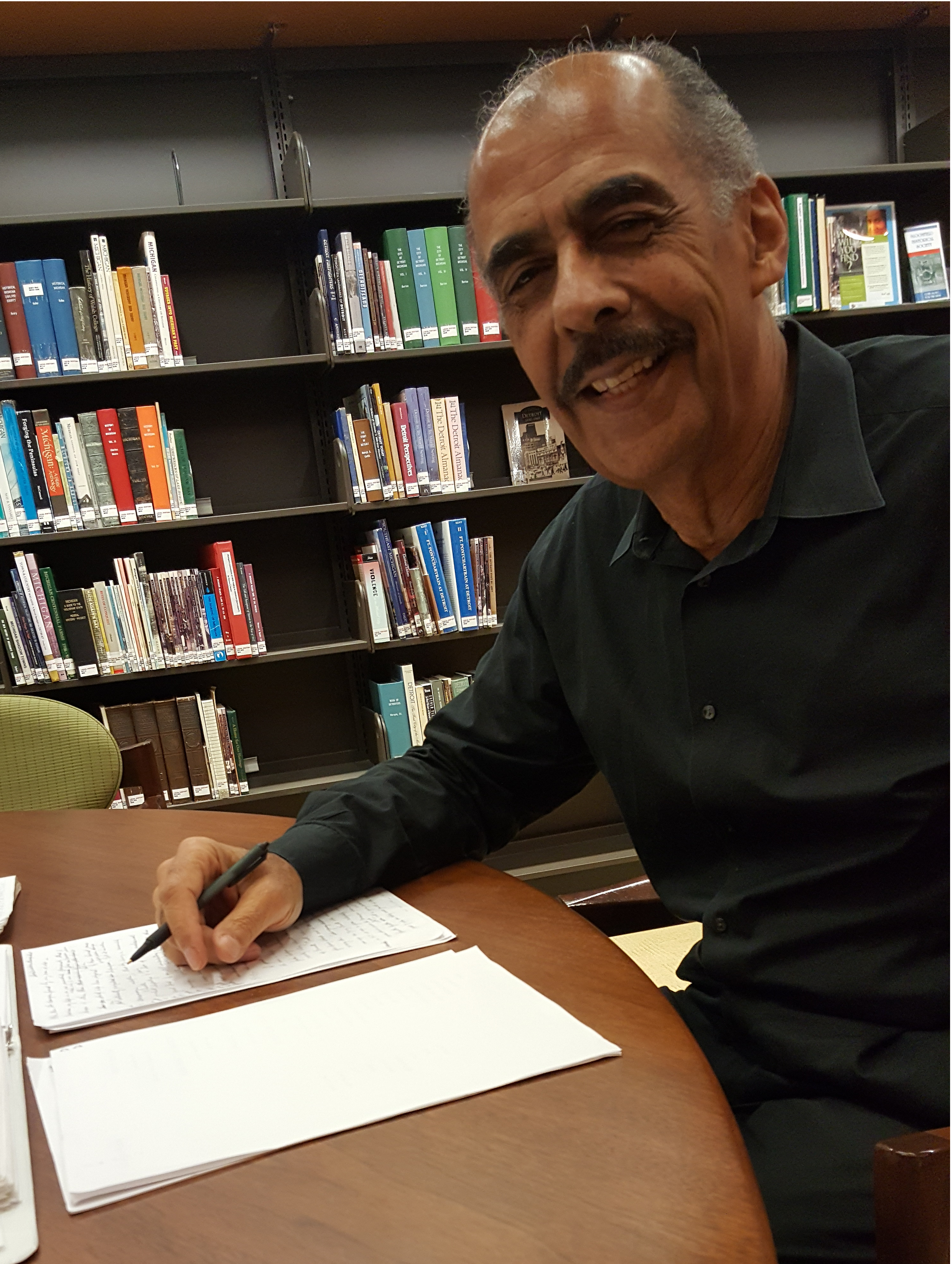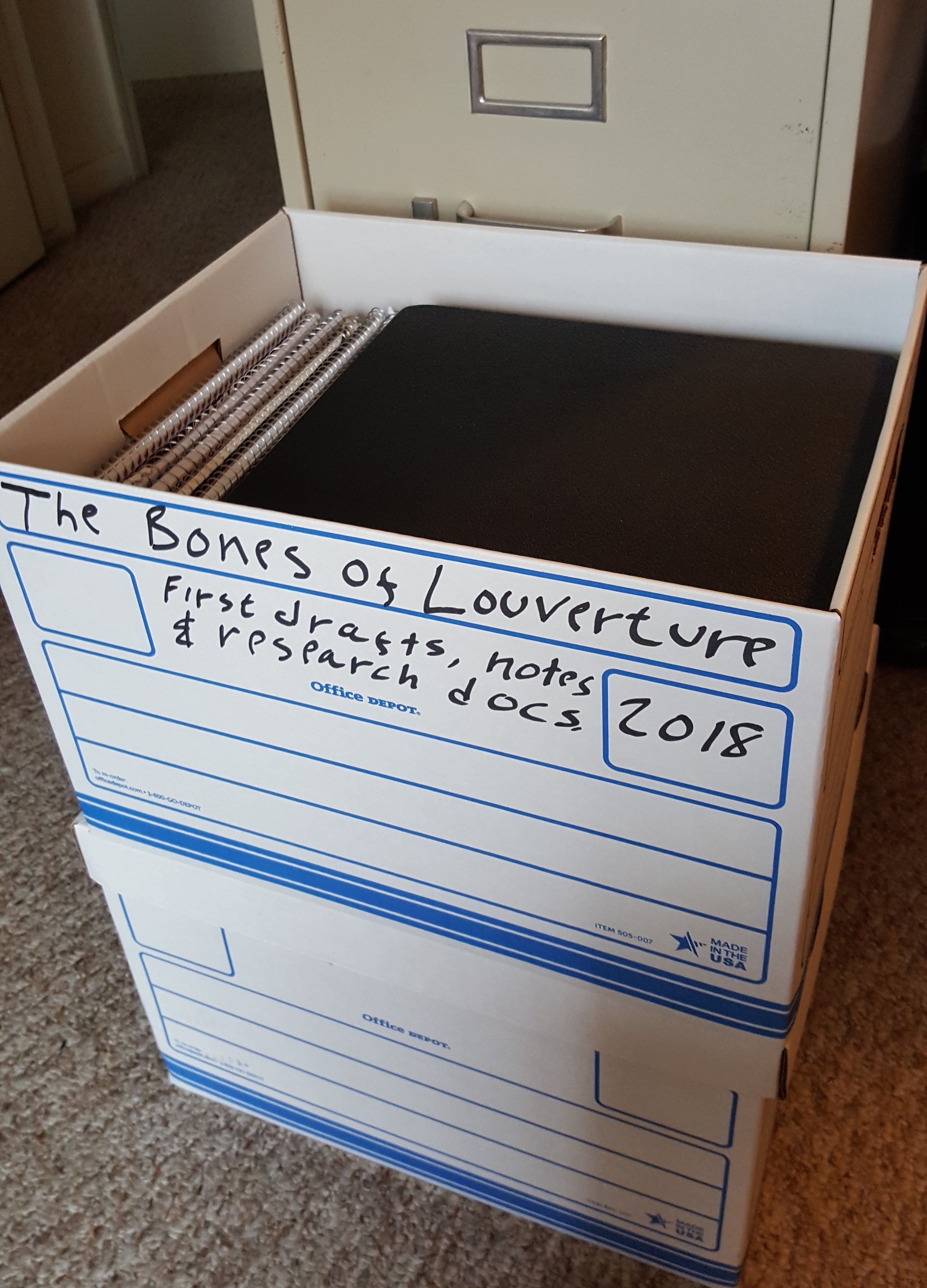 A while back, I took a break from my weekly posts to this blog so that I could devote more time to finishing my new novel, The Bones of Louverture. Since this was my second book, I thought I could easily improve on the two years it took to research and write my debut novel, A Place near the Front. But somehow that short break turned into a year as my last post was back on October 28, 2017. Obviously I underestimated the challenge I faced.
A while back, I took a break from my weekly posts to this blog so that I could devote more time to finishing my new novel, The Bones of Louverture. Since this was my second book, I thought I could easily improve on the two years it took to research and write my debut novel, A Place near the Front. But somehow that short break turned into a year as my last post was back on October 28, 2017. Obviously I underestimated the challenge I faced.
That first book was based on my father’s early life and therefore much easier to write than the new one. Although the events I wrote about took place long before I was born, I was able to recreate many of them from the stories and anecdotes my dad often told me when I was a boy. The story was set in Trinidad and New York in cultures that I grew up in. And much of the action took place within the framework of World War One, an environment that I, as a military veteran, understood well.
 The new book, however, covered new ground and presented tougher challenges for me. Set in the ruins of post-Baby-Doc Duvalier Haiti, The Bones of Louverture is a story of innocence lost, dreams abandoned and lives upended when hopeful reformers lose their way in a failed attempt to bring change to Haiti after the fall of its latest dictator. Street-protest leader Sonny and his ambitious protégé, Jacques, battle voodoo traditions and a culture of government corruption but veer from their mission of reform and descend into a world of drugs, violence and crime.
The new book, however, covered new ground and presented tougher challenges for me. Set in the ruins of post-Baby-Doc Duvalier Haiti, The Bones of Louverture is a story of innocence lost, dreams abandoned and lives upended when hopeful reformers lose their way in a failed attempt to bring change to Haiti after the fall of its latest dictator. Street-protest leader Sonny and his ambitious protégé, Jacques, battle voodoo traditions and a culture of government corruption but veer from their mission of reform and descend into a world of drugs, violence and crime.
Their world is shaken by an unexpected adversary, a truth-seeking university professor. A young Martinican teaching in the U.S., she is armed with powerful weapons unknown in voodoo realms, the tools of modern science. Jacques perishes but Sonny survives in the ensuing life-or-death fight for survival, redemption, and rediscovery of purpose that mirrors Haiti’s own continuing struggle to fulfill the faded promise of its heroic slave-revolt beginning.

While the 1987 events on which the new book is based are well-known and occurred within my lifetime, the Haitian setting and Creole orientation are very different from my British West-Indian roots in Trinidad and the U.S. The unfamiliar terrain required more extensive research and imaginative writing. Pictured at left are some of the many handwritten first drafts, notes and research documents I accumulated during this project.
For this book I was determined to improve my editing. In addition to my own many re-reads of the manuscript, for the first time I utilized automated tools like Grammerly to find misspellings, bad formatting, and grammar offenses like the dreaded split infinitive. I also used Hemmingway App to find run-on sentences and other writing crimes like overuse of adverbs and abuse of the passive voice. All of this additional editing took a ton of time and a lot of rewriting. And since I expanded my beta reader (i.e. test reader) group from one up to eight, I had to allow the necessary time for all readers to thoroughly review the whole 74,400 pages.
The bottom line is that the project took more rather than less time than the previous book, close to three years. Although during the writing, I vacillated between thinking sometimes that the book was a hopeless piece of crap and at other times that perhaps it had promise, in the end I like the way it turned out. I set many criteria to assess the quality of my work, but the most important is that it must be a page-turner. Any other goals that might be accomplished in a piece of writing won’t matter if the reader doesn’t feel compelled to keep reading. I invite you to check out a sample and tell me what you think. Chapter one can be downloaded from the Download page of my website at www.williamgherbert.com. Give me your feedback on my Contact page
I now face the final challenge, finding a publisher. It’s a tricky business, almost as tough as writing the book. I avoided this step with my first book by self-publishing. But to get proper promotion and distribution, a reputable publisher is invaluable. The challenge is to find a publisher whose tastes, editorial requirements and genre orientation are satisfied by my manuscript. Some 600,000 – 1,000,000 books are published each year in the U.S, but the less than 250 publishing houses in the country won’t handle all of this work. 50% of these books will end up self-published. I hope to not be one of them.
Stay tuned. I’ll let you know when the book is out.